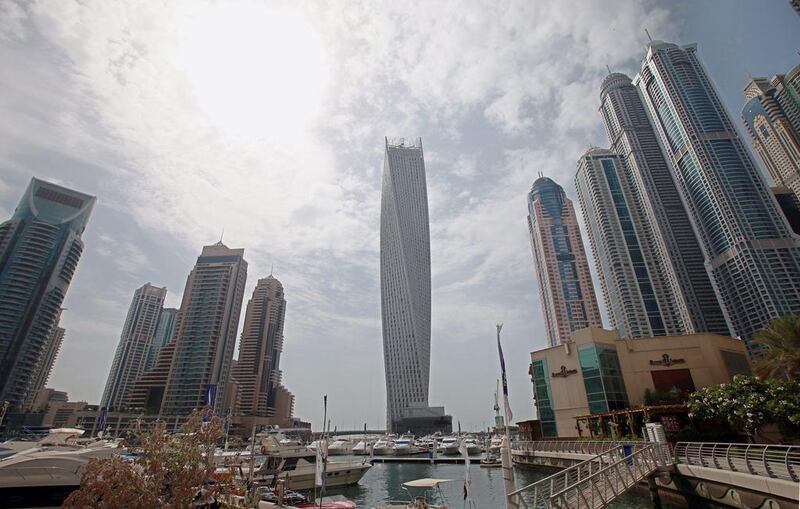During a year in which jitters about the US Federal Reserve’s tapering of monetary stimulus and a cooling in China’s economy took a toll on emerging markets, growth in the UAE surprised on the upside. Overall GDP reached 5.2 per cent, according to data released on Sunday by the National Bureau of Statistics. That was ahead of Turkey (4 per cent), India (4.7 per cent), Brazil (2.3 per cent) and Russia (1.3 per cent), which felt the fallout from currency swings and sluggish investment.
The UAE’s growth rate was the fastest since 2007 and also ahead of a forecast of 4.8 per cent by the IMF. The rate of expansion is a reflection of the UAE’s rapidly emerging status as a haven for stability in a region still beset by turmoil, as well as a sharp recovery in domestic consumer demand.
The economy was also shielded from the strife in other emerging markets thanks to the dirham’s currency peg to the US dollar and the predominant absence of foreign investors from its stock markets.
Finally, relatively high oil output and crude prices also provided a boost. Crude output averaged 2.8 million barrels per day, up from 2.64 million in 2012.
Prices averaged US$108 per barrel during the year, the bureau estimated. The oil sector expanded by 4.8 per cent, compared with 5.4 per cent growth in the non-oil part of the economy. The non-oil sector accounted for 67.3 per cent of overall output, the data showed.
Still, officials will be mindful that the largest contributor of growth outside the oil and gas sector was “property and business services”, accounting for 12.3 per cent of GDP and swelling 8.7 per cent during the year.
The sector expanded at a much faster rate than three of the other main pillars of the economy – trade; transport and communications; and manufacturing, which recorded growth of 2.4 per cent, 7.3 per cent and 1.2 per cent, respectively.
Last year’s property sector growth followed two subsequent years of double-digit expansion rates. Combined with transport and communications, the two sectors were the biggest drivers of total overall output. As the property market has revived, it has also stimulated a restart of construction projects. Last year was the first time since 2009 that construction provided a positive lift to growth, accelerating by 3.3 per cent.
A debt-inflated bubble in the property market was a key propeller of output in the boom years up to six years ago. When investor sentiment cooled in the wake of a global credit crunch, prices collapsed by more than half in the following two years.
Output sagged in 2009, as a result. Several officials had expressed hope at the time that the downturn would allow for a rebalancing of the economy, giving property a backseat role and enabling the UAE’s historic drivers of logistics and trade to take the strain.
The shift would allow for more stable expansion in the long run. The latest data shows that property is firmly back in the economy’s driving seat.
This year, the growth outlook remains promising. Dubai’s selection in November as the host of the World Expo 2020 has lifted business sentiment, while supporting activity in the wider economy.
The inclusion from this month of several UAE stocks in the index provider MSCI’s Emerging Markets Index is placing the country on the radar of more foreign investors. The property market may also be cooling off, according to recent property data from the first quarter of this year. Although that could pin back growth, it would likely help temper the risk of another potentially destabilising property bubble developing.
The oil sector’s role is also likely to retreat. As oil output had declined to 2.61 million barrels per day last month, the overall contribution of the sector to GDP was expected to decline, estimates Alp Eke, senior economist at National Bank of Abu Dhabi. He forecasts growth of between 4.1 and 4.2 per cent this year. That is still likely to be better than Turkey, Brazil and Russia this year, if not India.
tarnold@thenational.ae
Follow us on Twitter @Ind_Insights





